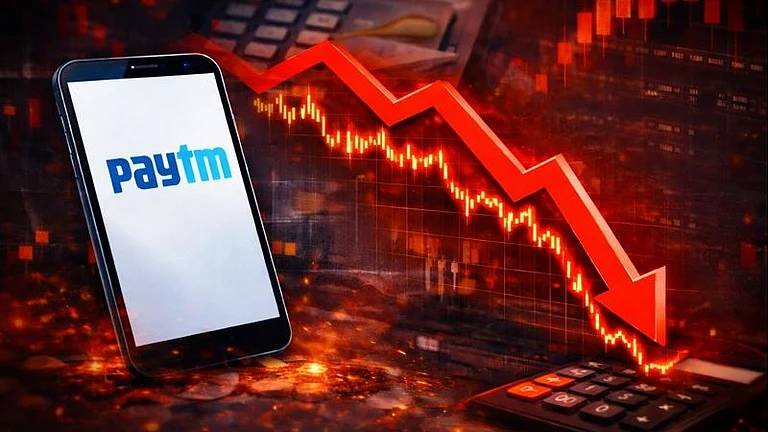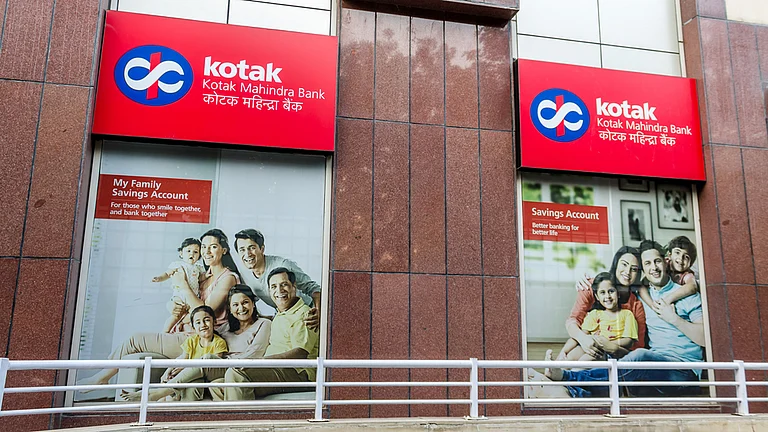One97 Communications, the parent company of fintech platform Paytm, has seen a smart-rebound rally in the last few weeks, following a challenging period at Dalal Street. The stock has been flirting with Rs 1,000 mark, after tripling investors' money from its 52-week low at Rs 310, hit in May this year. The stock surged to a 52-week high of Rs 1,007 on Monday amid a deal with PayPay Corporation in Japan.
As the stock turned multibagger in just five months, market analysts have reaffirmed their bullish stance on Paytm, claiming the worst is over for the fintech major. Marred by RBI's regulatory strictness on its payment Bank and wallet services, the beleaguered counter is aiming for a comeback on the back of stake sales in various non-core entities and focusing on core business to turn EBITDA positive.
Amit Khurana, Head of Institutional Equities, Dolat Capital explained fundamental reasons behind the recent surge in Paytm share price. “One of the significant reasons could be the improvement in regulatory headwinds that impacted the company’s business in the past. Another major factor is the fintech’s clearer path to profitability,” he said.
In Q2 FY25, Paytm’s revenue increased by 10.5 per cent quarter-on-quarter basis to Rs 1,660 crore. The revenue growth is drive by 7.0 per cent Q-o-Q growth in the payment services business and 34.3 per cent Q-o-Q growth in the financial services business.
If this momentum continues, the company could achieve profitability either by 2026 or 2027, Khurana told Outlook Business. He also gave ‘buy’ rating for the Paytm stock, while emphasising on fintech’s strong growth potential and profitability.
Another analyst echoed similar sentiments, saying the surge has come following recent developments like the company’s approval for sale of stake in Softbank group’s fintech firm PayPay Corporation and NPCI’s approval to onboard new UPI users. Zomato has also acquired Paytm subsidiaries WEPL and OTPL for the entertainment ticketing business in August this year.
“Paytm is well-positioned in the digital money revolution and can deliver long-term value if the company does not see any further government intervention, the way it had hurdles one year back. A lot of things have turned better now for the stock, which can lead to healthy growth going forward,” said Prashanth Tapse, Research Analyst, Senior Vice President of Research at Mehta Equities.
He further highlighted a crucial lesson for Paytm --- the importance of ‘overpromising’ and ‘under-delivering’. “Instead, setting realistic expectations and exceeding them can benefit both the company and its investors,” Tapse suggested.
While the fintech sector is likely to face ongoing challenges from emerging competitors disrupting Paytm's growth trajectory in the short term, the overall industry still holds significant long-term potential, he said.
However, analysts remain skeptical over the possibility of Paytm regaining its IPO prices, while predicting a stable outlook for 2025. The company had floated its IPO in November 2021 at Rs 2,150.
Paytm Shares On Tipsy-Topsy Turf
The fintech stock took a major hit after the Reserve Bank of India (RBI) barred Paytm Payments Bank from accepting new deposits, and ruled out any review of its action against the company. The central bank has cited persistent non-compliances and continued material supervisory concerns, for the regulatory action.
However, Paytm shares have remained well destroyers for investors. The fintech major launched its mega IPO in November 2021 when it raised Rs 18,300 crores, selling its shares for Rs 2,150 apiece. The stock disappointed its listing on the bourses. On the worst side, it wiped out over 85 per cent of investors' wealth and hit the record low earlier this year.
Even at its latest close at Rs 968 on Tuesday, the stock is still 55 per cent below its issue price.
































